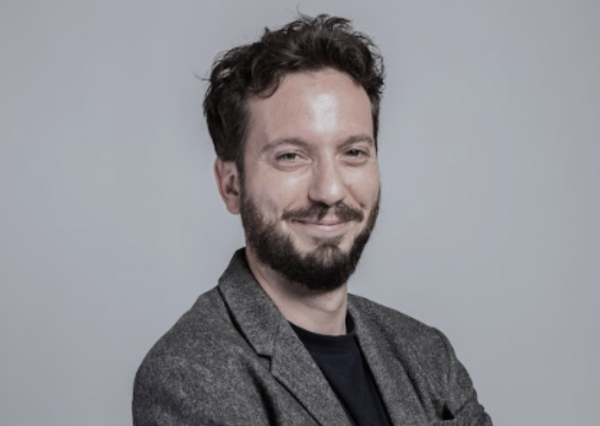"Creating international spaces for comics is commendable."

© Arthur Derrouaz
The Comics Centre at last year's Frankfurter Buchmesse will become the Comics Business Centre in 2024. And Arthur Derrouaz, Rights Manager at the Steinkis Group and an expert on graphic novels, will be there. How does he work? How does he experience book fairs? And what exactly is solastalgia?
1. What exactly do you do with comics and graphic novels in your day-to-day work?
I represent several lists, including that of Jungle, a publishing house focused on children's comics, and Steinkis, dedicated to graphic novels for a more mature audience. More recently, I’m also in charge of our little Splash imprint, which publishes children's books that are a big hit at the moment.
My job is that of any Rights Manager: I look for partner publishers to promote our works around the world, to give our authors and publishers greater scope. I also manage audiovisual rights, which means that I also have to canvass producers and take part in the various events where such meetings are organised. This is an important area of development for our structures: rights sales are a significant source of income for our companies and our authors.
My day-to-day work therefore ranges from complex tasks such as negotiating contracts to more modest but essential jobs, such as sending foreign copies to authors, creating newsletters and catalogues. It's a very varied day, requiring a wide range of skills: commercial, legal, literary and so on.
2. You have booked a stand with us in the Comics Business Centre. What needs to happen at the book fair for you to go back to Paris satisfied?
Trade fairs are both very exciting and very stressful times! The stakes are high for our businesses and set the pace for the year. So it's vital that everything runs smoothly and according to plan: booking the stand, communicating the design elements and stand number in advance, contacts for equipment delivery, electrical sockets, WIFI, etc. These are the little practical details that, when put together, take the pressure off and allow us to concentrate on what matters: the meetings with our foreign partners.
Location is of course another important point. We are there to promote our brands. Visibility and accessibility for publishers who are already running all over the place are essential factors in having effective meeting days. Bringing comic publishers together in one space is really interesting from this point of view.
Finally, cost is also a consideration. We take part in a large number of events throughout the year, which can be very costly, especially for independent organisations like ours.
3. What do you think are the big trends in comics and graphic novels?
I'm responsible for canvassing all the markets, which makes it difficult to carry out such an analysis, given the huge disparities between them. Cultural sensitivities are specific to each territory and mean that a title will be a great success here and a failure there.
However, I can say that the publications that travel best with us are adaptations of great literary classics. We have created a collection dedicated to this, Jungle Pépites, in which we have produced some very fine works that respect the spirit of the original work, from Animal Farm to Les Misérables, including L'Appel de la Forêt and Le Magicien d'Oz (both to be published at the end of 2024). Adapting famous works is reassuring because they have already demonstrated their ability to reach audiences beyond their country of origin.
Comics with a manga-like style are also prime targets for our partners, who see them as a way of capturing some of the manga readership.
As for graphic novels, we have developed a dedicated line for teenagers, which is doing very well in France, and consists mainly of acquisitions. I've noticed that the few titles we've developed are also attracting interest, with very fashionable themes such as mental health and *solastalgia. (*A distressing feeling of loss that arises when someone witnesses the destruction of their own living space.)
4. There's a nice sentence on your website: "Editions Steinkis tries to offer a vision of the world based on bridges, rather than walls." Can a book fair also be such a bridge for you? And if so, how?
It goes without saying that book fairs are absolutely vital to our business. They give reality to interactions that are essentially digital for the rest of the year. But we're talking about creation, art, culture and commerce, and that means people, sensibilities and contact. And that's what art fairs are all about, bringing us together.
The initiatives of the Frankfurt fair, like the Bologna fair (which we also attend), to create international spaces for comics are commendable from this point of view. When I go there, I have my direct contacts around me. Meeting with them is always relevant.
5. What are you most looking forward to when you are in Frankfurt in October?
Apart from the curry wurst, of course, Frankfurt is always a fair where you meet up with everyone: lots of publishers you haven't seen for months or even years, old colleagues. It's a time of intense work, but it's also a time of joyous conviviality. It's this strange mix that makes it such an exciting, unmissable (and exhausting, it has to be said) event.
Thank you very much for the interview!
You can register for the Comics Business Centre joint exhibition here.
The interview was conducted by Frank Krings, PR Manager at Frankfurter Buchmesse.
